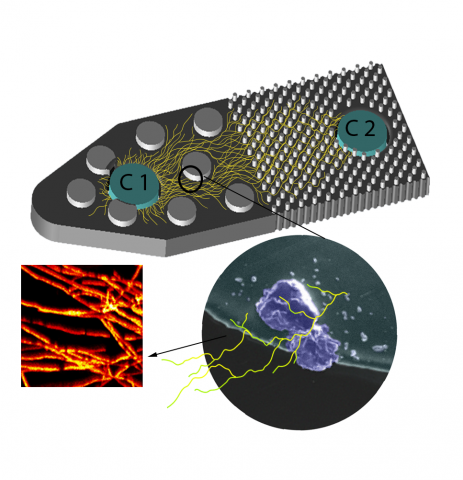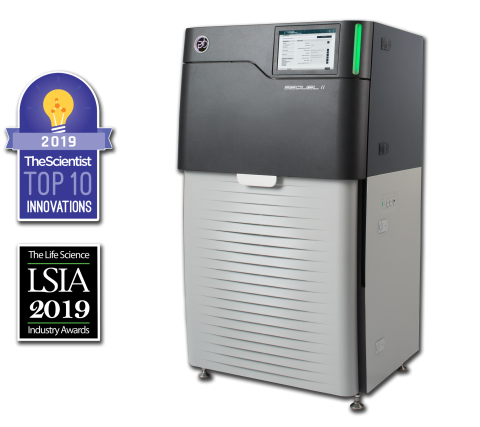Last updated on 2023-05-02T18:08:23+00:00 by LN Anderson Fungal Monoisolate Multi-Omics Data Package DOI "KS4A-Omics1.0_FspDS68" Molecular mechanisms underlying fungal mineral weathering and nutrient translocation in low nutrient environments remain poorly resolved, due to the lack of a platform for...
Filter results
Tags
- (-) Ebola (9)
- (-) Mass Spectrometry (8)
- Virology (77)
- Immune Response (51)
- Time Sampled Measurement Datasets (50)
- Differential Expression Analysis (46)
- Gene expression profile data (45)
- Homo sapiens (34)
- Mass spectrometry data (30)
- Multi-Omics (30)
- Health (23)
- Virus (23)
- Viruses (23)
- MERS-CoV (18)
- Mus musculus (18)
- West Nile virus (13)
- Omics (12)
- Influenza A (11)
- Microarray (7)
- Resource Metadata (7)
- Human Interferon (6)
- Omics-LHV Project (6)
- Proteomics (6)
- Type 1 Diabetes (6)
- Autoimmunity (5)
- Machine Learning (5)
- Biomarkers (4)
- Mass Spectrometer (4)
- Mass spectrometry-based Omics (4)
- Processed Data (4)
Last updated on 2024-02-11T22:41:43+00:00 by LN Anderson Influenza A Virus Experiment ICL106 Metadata The purpose of this experiment was to evaluate the human host epigenetic response to Influenza A virus (subtype H5N1) infection. Samples were obtained from human lung adenocarcinoma cell line (Calu...
Category
Last updated on 2024-02-11T22:41:43+00:00 by LN Anderson Influenza A Virus Experiment ICL105 Metadata The purpose of this experiment was to evaluate the host epigenetic response to Influenza A virus (subtype H5N1) infection. Sample data was obtained from human lung adenocarcinoma cells (Calu-3) and...
Category
Last updated on 2024-02-11T22:41:43+00:00 by LN Anderson Ebola Virus Experiment EH001 The purpose of this experiment was to evaluate the human patient peripheral blood mononuclear cells (PBMC) response to Zaire Ebola virus (strain Makona) infection during the 2013-2016 epidemic in West Africa...
Category
Last updated on 2024-02-11T22:41:43+00:00 by LN Anderson Ebola Virus Experiment EU937001 The purpose of this experiment was to evaluate the human host response to wild-type Zaire Ebola virus (strain Mayinga) and mutant virus infection. Samples were obtained from human histiocytic lymphoma cells...
Category
Last updated on 2024-02-11T22:41:43+00:00 by LN Anderson Ebola Virus Experiment EHUVEC001 The purpose of this experiment was to evaluate the human host response to wild-type Zaire Ebola virus (strain Mayinga) and mutant virus infection in VP30 expression background. Sample data was obtained from...
Category
Last updated on 2024-02-11T22:41:43+00:00 by LN Anderson Ebola Virus Experiment EHUH003 The purpose of this experiment was to evaluate the human host response to wild-type Zaire Ebola virus (strain Mayinga) infection. Samples were obtained from human hepatoma carcinoma cells (HUH-7) infected with...
Category
Last updated on 2024-02-11T22:41:43+00:00 by LN Anderson Ebola Virus Experiment EHUH002 The purpose of this experiment was to evaluate the human host response to wild-type Zaire Ebola virus (strain Mayinga) and mutant virus infection. Samples were obtained from human hepatoma carcinoma cells (HUH-7)...
Category
Last updated on 2024-02-11T22:41:43+00:00 by LN Anderson Ebola Virus Experiment EHUH001 The purpose of this experiment was to evaluate the human host response to wild-type Zaire Ebola virus (strain Mayinga) and mutant virus infection. Samples were obtained from human hepatoma carcinoma cells (HUH-7)...
Category
Last updated on 2024-02-11T22:41:43+00:00 by LN Anderson Interferon Experiment IFNaHUH001 The purpose of this experiment was to evaluate the human host cellular response to treatment with and without interferon alpha/beta (IFNα/β) treatment. Sample time course data was obtained from human hepatoma...
Category
Human infections caused by viral pathogens trigger a complex gamut of host responses that limit disease, resolve infection, generate immunity, and contribute to severe disease or death. Here, we present experimental methods and multi-omics data capture approaches representing the global host...
Category
The Sequel II System Sequencer is a high-throughput DNA sequencer machine developed and manufactured by PacBio , and is designed for high throughput, production-scale sequencing laboratories. Originally released in 2015, the Sequel system provides Single Molecule, Real-Time (SMRT) sequencing core...
Biography Young-Mo Kim is a senior bioanalytical chemist at PNNL. He received his PhD from Pohang University of Science and Technology in the School of Environmental Science and Engineering, studying analysis of metabolites during the bacterial and fungal degradation of xenobiotic substrates using...
Biography Carrie Nicora is a senior research scientist (chemist III) at PNNL, specializing in high-throughput scientific research sample management using modular automation techniques for processing a wide range of biological specimens for proteomic, metabolomic, and lipidomic analysis. She is an...
Category
Biography Kristin Burnum-Johnson is a senior scientist and team lead of the Biomolecular Pathways team at PNNL. Burnum-Johnson earned her PhD in Biochemistry from Vanderbilt University with Professor Richard M. Caprioli and then completed a postdoctoral fellowship at PNNL with Dr. Richard D. Smith...






